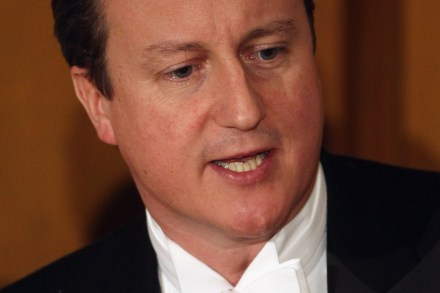The debate over Europe’s future
We’ve got two interventions by high-profile European politicians in the British papers this morning. In the FT, German foreign minister Guido Westerwelle lays out Germany’s stance, providing a taste of what David Cameron can expect when he meets Angela Merkel in Berlin today. He begins by underscoring the importance of keeping the eurozone together: ‘The eurozone is the economic backbone of the European Union. Its stability directly affects non-euro states and global financial markets. An erosion of the eurozone would jeopardise Europe as a political project, and with it the chance to make our values and interests be heard in the new power set-up of the 21st century. Stabilising the


















